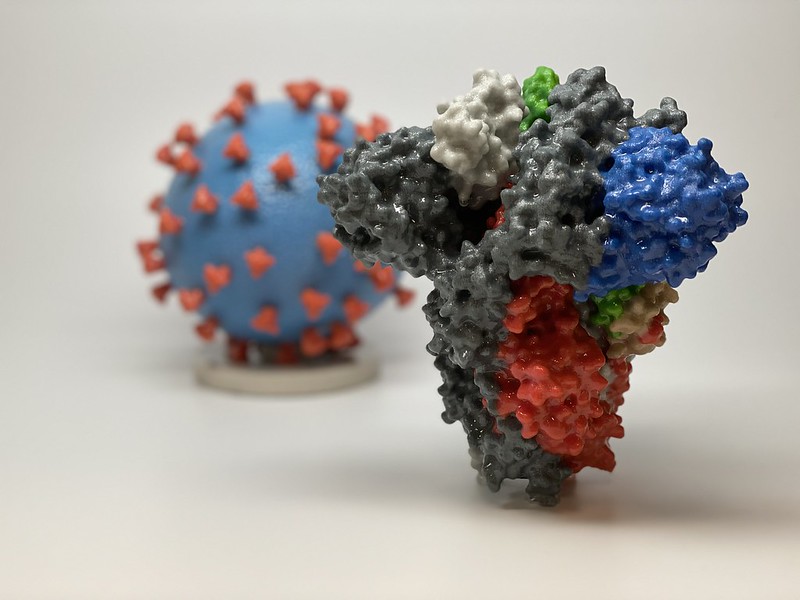Oxford University and the multinational computer technology corporation Oracle have joined forces to create a Global Pathogen Analysis System (GPAS) to help governments and medical communities identify and act on variants of the COVID-19 virus faster.

The emergence of more infectious variants is threatening to slow the global recovery and potentially thwart current vaccine immunity. The GPAS platform combines Oxford’s Scalable Pathogen Pipeline Platform (SP3) with Oracle’s Cloud Infrastructure (OCI).
“This powerful new tool will enable public health scientists in research establishments, public health agencies, healthcare services and diagnostic companies around the world to help further understanding of infectious diseases, starting with the coronavirus,” said Derrick Crook, Professor of Microbiology in the University’s Nuffield Department of Medicine and the NIHR Oxford Biomedical Research Centre Theme Lead for Antimicrobial Resistance and Modernising Microbiology.
“The Global Pathogen Analysis System will help to establish a global common standard for assembling and analysing this new virus, as well as other microbial threats to public health. This adds a new dimension in our ability to process pathogen data. We are excited to partner with Oracle to further our research using this cutting-edge technology platform.”
This initiative builds on the work of a Wellcome Trust-funded consortium including Public Health Wales, the University of Cardiff, and Public Health England.
First used for tuberculosis, SP3 has been repurposed to unify, standardise, analyse and compare sequence data of SARS-CoV-2, yielding annotated genomic sequences and identifying new variants and those of concern.
SP3’s processing capability has been enhanced with extensive new development work from Oracle, enabling high performance and security plus worldwide availability of the SP3 system in the Oracle Cloud. The SP3 system will now deliver comprehensive and standardised results of COVID-19 analyses within minutes of submission on an international scale. The results will be shared with countries around the globe in a secure environment.
“The opportunity of applying systematic examination for genetic variants in a range of pathogens will have major benefits for global public health. This programme, with Oracle as a partner, takes us a step closer to this goal,” said Sir John Bell, Regius Professor of Medicine at the University of Oxford.
Coupled with the extensive machine learning capabilities in the Oracle Cloud, collaborating scientists, researchers and governments worldwide can process, analyse, visualise and act on a wide collection of COVID-19 pathogen data for the first time. This includes identifying variants of interest and their potential impact on vaccine and treatment effectiveness.
For example, analytics dashboards in the system will show which specific strains are spreading more quickly than others and whether genetic features contribute to increased transmissibility and vaccine escape. Already, Oxford has processed half the world’s SARS-CoV-2 sequences, more than 500,000 in total.
“There is a critical need for global cooperation on genomic sequencing and examination of COVID-19 and other pathogens,” said Oracle Chairman and chief technology officer, Larry Ellison. “The enhanced SP3 system will establish a global standard for pathogen data gathering and analysis, thus enabling medical researchers to better understand the COVID-19 virus and other microbial threats to public health.”
The next step will be to extend this service to all pathogens while simultaneously collaborating with scientists from research establishments, public health agencies and private companies to ensure this work can inform decision-making on pandemic response strategies worldwide.
The platform will be free for researchers and non-profit organisations to use worldwide.
Dr Isabel Oliver, Director of the National Infection Service at Public Health England, noted: “This donation is a welcome boost to the ability to share genomic sequencing data with colleagues all across the world. Not only are strong genomic examination and widely-available data crucial to our collective efforts to combat the current pandemic, but they will have ongoing benefits to the response to other pathogens in the future.
“This could potentially have a far-reaching positive impact on international public health and global health security. As new variants of SARS-CoV-2 emerge around the world, it requires a cooperative global effort to respond effectively. Partnerships like this one are absolutely vital to ensuring that we can mitigate the impact of COVID-19 on the world’s population, and that we can continue to strengthen our ability to confront emerging threats in the years to come.”